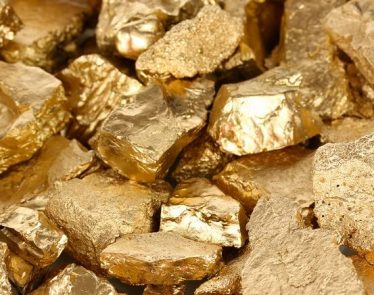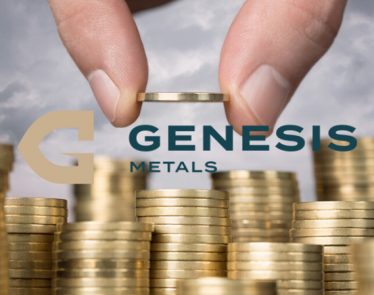
The iron ore price, which has already surpassed $100 per ton, could rally higher yet as mining giant Vale (NYSE:VALE) faces ongoing issues at its Brazilian mines. At the same time, the other two members of the “Big 3,” BHP Billiton (NYSE:BHP) and Rio Tinto Plc (NYSE:RIO), have also signaled reduced iron ore production, adding to the inevitable global iron ore deficit.
All of these factors have caused the iron ore supply at major trading ports in China to drop to “critically low levels” and have spurred major supply concerns around the world.
There are also a number of other factors pushing up the demand for iron ore around the world.
Despite slower economic growth in China, the nation has an insatiable need for steel and accounts for over 65% of iron ore imports, dwarfing any other country on the top 15 list. Meanwhile, India has also continued to increase its iron ore imports.
The iron ore market movement is a breath of fresh air for mining companies and investors alike, as prices soar to five-year highs and are expected to continue upwards.
Some of the iron ore companies that are well-positioned to capitalize on this shift include Champion Iron Ltd (TSX:CIA) (OTCPK:CHPRF), Delrey Metals (CSE:DLRY) (OTCPK:DLRYF), and Labrador Iron Ore Royalty Corporation (TSX:LIF) (OTCPK:LIFZF).
Iron Ore Price Increases as Supply Concerns Grow
As mentioned, the world’s number one iron ore supplier, Vale, continues to see issues at its mines in Brazil. Most recently, the company told prosecutors that a dam at its Gongo Soco miner is at risk of rupturing, which is located just 40 miles from where Vale’s Brumadinho dam collapsed.
Although Vale has since downplayed the risk of Gongo Soco breaking and has taken preventative measures, it is likely regulators will be keeping a close eye on its operations.
>> RWLK Stock Jumped 145% Today and You Won’t Believe Why
When the Brumadinho dam collapsed in January, it killed 230 people and caused billions in environmental damage, leading the Brazilian government to order 56 tailing dams to close, 13 of which belonged to Vale. Brumadinho’s impact on Vale’s iron ore production amounts to approximately 93 million tonnes per year alone.
Iron ore supply coming from Australia has also dropped after Cyclone Veronica hit the coast on Western Australia in March, causing major miners BHP Billiton and Rio Tinto to cut their production outlooks.
At the same time, BHP is facing a $5 billion lawsuit from a dam collapse in 2015 at its Samarco mine in Brazil, which killed 19 people and polluted more than 600 kilometers of Brazil’s river systems.
Meanwhile, Rio Tinto faced operational issues in Q1, including a fire at its Cape Lambert iron ore export terminal in early January. Rio is also under fire regarding its production practices after the Australian Manufacturing Workers’ Union (AMWU) accused the company of “putting production over safety” and cutting corners.
Iron Ore Mining Companies in Canada Could Pick Up the Slack
This lack of supply from the Big 3 bodes well for iron ore miners working in safer, mining-friendly districts. One of these is junior resource exploration and development company Delrey Metals, which has 80% ownership in the 12,528-acre Four Corners vanadium-iron-titanium project in Newfoundland, one of the top mining jurisdictions in Canada.
Delrey recently reported lithium metaborate fusion assays from Four Corner that revealed iron results ranging from 19.16% Fe203 (iron oxide) all the way up to 48.61% Fe203 (iron oxide), with an average grade of 35.07% iron oxide.
>> AMBA Stock Skyrockets: Investors Cheer a Surprise Profit
Labrador Iron Ore Royalty Corporation (LIORC) is another iron ore miner that has interests in the Newfoundland area, with mining leases and licenses that cover roughly 18,200 hectares near Labrador City. With estimated total reserves of 1.3 billion tonnes, LIORC has sufficient mineral inventory to support future expansions.
Meanwhile, Champion Iron has two flagship iron ore projects in Quebec that also boast significant iron resources.
Moving forward, analysts expect the near-term iron ore price to remain at its current level.
“We substantially downgraded Vale’s output according to its new guidance and expect a larger market deficit of 27 million tonnes in 2019, to be followed with modest surplus in years to come,” said Citibank’s Commodity Analyst team.
For the medium-term, Citibank believes improved profitability at steel mills in China along with its robust demand for steel products will keep the benchmark iron ore price at elevated levels. Long-term, Citi expects the price to average $70 per tonne in 2020, although things can change quickly.
Investors who are interested in the iron ore market will want to keep an eye on iron ore production coming from LIORC and Champion as well as further developments from Delrey Metals’ Four Corners mine.
Featured Image: Pexels











